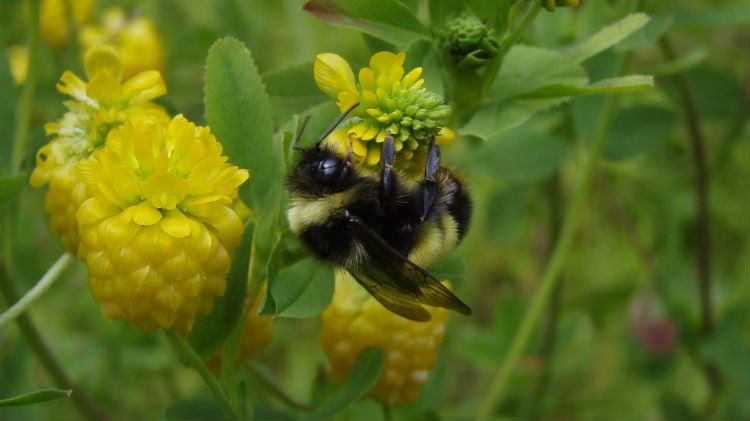Bees aren’t at risk of disappearing from the Northwest Territories anytime soon, but it’s no secret that their populations are dwindling elsewhere.
As part of National Wildlife Week, the territorial government is profiling bees and the important role they play in our day-to-day lives.
Wildlife officials say the NWT is home to 110 species of bees, of which three are considered to be at risk. Throughout North America, overpopulation, urbanization and pesticides are often blamed for their dwindling numbers.
While those threats don’t exist to the same degree up North, biologists say we shouldn’t take their presence for granted.
“It’s important for people to know how much of a role bees play, not just in agriculture, but in our neck of the woods in the tundra too,” said wildlife biologist Suzanne Carriere.
Gardening This Summer? Community Plots Are Available
“They are so important to the tundra and taiga that if they were to disappear, it’s impossible to imagine what would actually happen.
“That’s what people forget. Even such a little insect does so much for us for free all the time.”
Carriere says bees are effective pollinators and are essential to the growth of berries and willow trees.
But populations have been trending downwards for the past few decades and only now are people starting to take notice.
“[Bees] are doing worse where humans have been for longer, where people have used pesticides longer and where people have created landscapes that are paved,” said Carriere.
“Humans aren’t really good at detecting slow trends. We think, ‘oh they’ll come back, it’s just a cycle.’
“They’ not about to disappear tomorrow – not in the North anyways – but they’re in trouble in most of North America and the world.”
Lazy Gardening
On a larger scale, Carriere says urbanization and pesticides are to blame for dwindling populations around the world.
So what can be done on an individual level to boost their numbers? According to Carriere, ‘lazy gardening’ can help.
“When everything is so clean – without leaves and litter if you clean it in the fall – you’re actually destroying areas for bees,” she said.
“Make sure you have some of those outside elements like high grass inside the community. In smaller communities around the NWT, you can find more bees than you can here in Yellowknife.
“That gives you an idea of the impact our paved world has on bees.”
As part of Wildlife Week, government officials and biologists will host a conversation on bees Wednesday night at the Northern Visitors Centre.
The event is open to the public and starts at 7pm.




